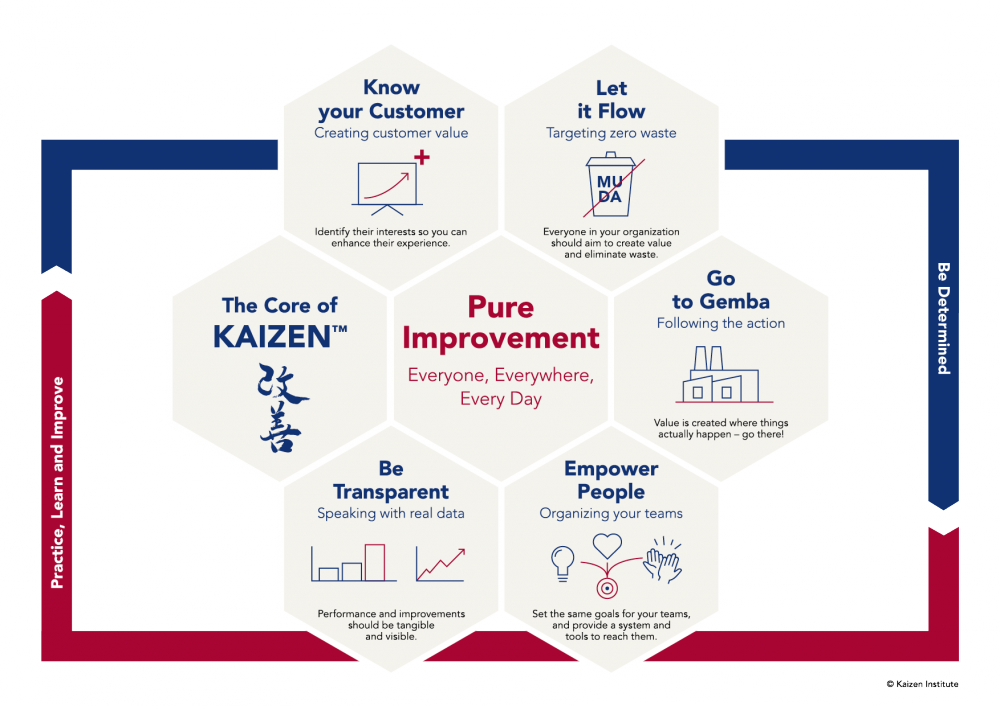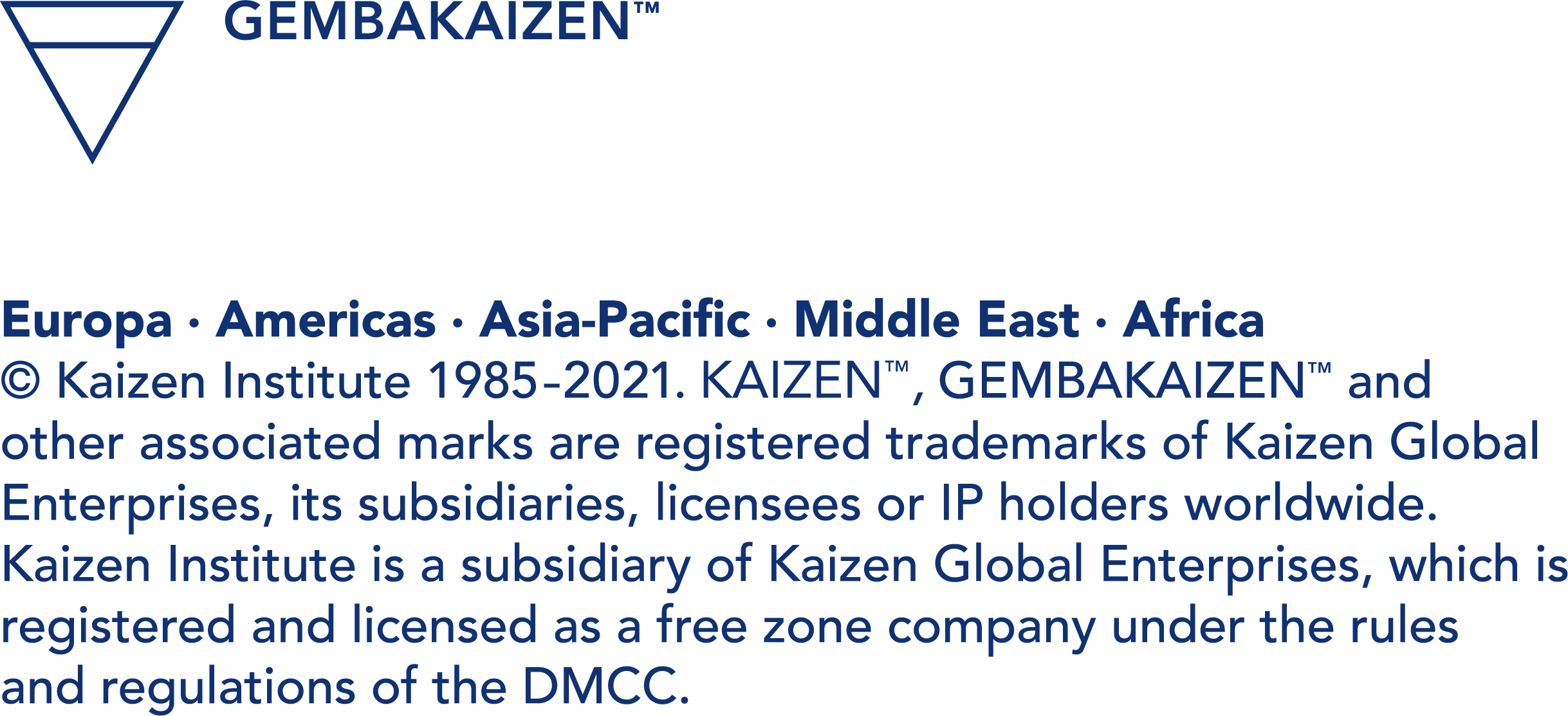Definition of KAIZEN™
Over 30 years ago, Masaaki Imai sat down to pen the groundbreaking book ‘Kaizen: The Key to Japan’s Competitive Success’ (McGraw Hill). Through this book, the term KAIZEN™ was introduced in the western world. Today KAIZEN™ is recognized worldwide as an important pillar of an organization’s long-term competitive strategy. Since introducing this term as a systematic approach for business improvement, companies that implement KAIZEN™ have continually yielded superior results.
"KAIZEN™ means improvement. Moreover, it means continuing improvement in personal life, home life, social life, and working life. When applied to the workplace KAIZEN™ means continuing improvement involving everyone – managers and workers alike." Masaaki Imai, Founder of Kaizen Institute
Definition of KAIZEN™
Masaaki Imai, Founder of Kaizen Institute
The Core of KAIZEN™
There are 5 Fundamental KAIZEN™ Principles that are embedded in every KAIZEN™ tool and in every KAIZEN™ behavior. The 5 principles are: Know your Customer, Let it Flow, Go to Gemba, Empower People and Be Transparent. The implementation of those 5 principles in any organization is fundamentally important for a successful Continuous Improvement culture and to mark a turning point in the progression of quality, productivity, and labor-management relations.
Get all the latest news about Kaizen Institute India.
Subscribe now.
By signing up, you agree to our Privacy Policy









